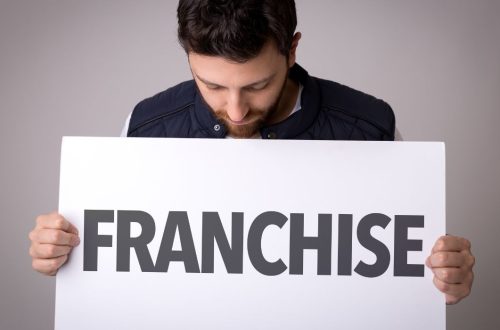What Is Franchising & How Does It Work | SkillsAndTech
Creating and running a business is always a risky move for everyone. It requires massive work, even if you can succeed and not go bankrupt.
However, when running a business, there are always some options to make your experience a bit softer. Some of these options allow you to expand your geographic locations and add additional revenue sources like franchising.
By franchising, a business can thrive faster, reach out to more people, and grow its customer base. Yet, franchising also comes with some problems, and a business must adapt to these successfully if it wants to survive. This article teaches about franchising, how to do it, and the benefits.
See Also: Goodwill Franchise
Table of Contents
What Is Franchising?
Franchising is essentially a contractual agreement, a license, that allows the owner of a business to grant the use of the brand’s name, its trademark, processes, strategy and the propriety business knowledge to the franchisee.
Once a franchisee and the franchisor go under a franchising agreement, the franchisee can sell products or services of the franchising brand. In almost all cases, the franchisor asks for a fee, both up-front and ongoing, for the other side to keep the rights.
See Also: Xfinity Franchise
The fees associated with the franchise vary in every situation because the agreements depend on the brand’s success.
A world-renown, high-revenue brand like Burger King will require more capital and fees to purchase than a smaller brand. Because it gives access to every part of a brand, it is a popular way for most entrepreneurs to start their journey.
How Does Franchising Work?
See Also: Costco Franchise
Franchising work in similar ways most of the time since it is a contractual agreement that works on certain guidelines and rules.
To start the franchising cooperation, a franchise business owner partners up with a franchisee. The franchisor grants the rights of the brand and intellectual property through a contractual agreement on an agreed initial fee.
Once the agreed fee is paid and both sides agree on the agreement, the franchisee can start to set up the branch. Buy supplies, start the training of the employees, and get ready all under the supervision of the franchisor. However, the franchisee must agree to work under the guidelines of the franchisor, such as:
See Also: Walgreens Franchise
- To follow the rules of the franchisor to service the customers and provide the service or the product,
- Obey all the brand guidelines the franchisor has,
- Pay the ongoing franchise fees each month or year,
- Contribute to the marketing campaigns of the brand, if necessary,
- Do not damage the brand in any way.
These guidelines might depend more or less on the franchise brand’s owner. Still, there is generally quite a lot of set of rules and guidelines to follow.
See Also: Franchise Disclosure Document
This is to ensure that the integrity of the brand is not damaged and that it follows the brand’s quality standards.
Pros & Cons Of Franchising
Like everything in business, franchising is not just about the benefits it brings. There are both pros and cons that anyone has to be aware of about franchising. These pros and cons could affect the decision that someone will make about franchising.
Pros
See Also: Sheetz Franchise
- You follow an already established business that is already working. This means that you don’t have to create a brand from scratch and avoid wasting time on it
- The brand already has a loyal customer base who knows the brand and occasionally visits.
- The store will have customers from day one, and the branch owner will not have to worry about attracting people as opposed to starting a business from scratch.
- There is no need to spend time on what to sell or how to sell it as the franchise owner already has established products to sell and approved suppliers.
- Staff training comes from the franchisor.
Cons
See Also: Cracker Barrel Franchise
- Extremely heavy start-up and ongoing royalty costs, especially for popular and big brands,
- The franchisee doesn’t have the option to choose the most financially viable option with supplies, branch design, decorations,
- Lack of control over the brand blocks creativity. Franchisees have to obey very strict rules, and you can’t change anything.
Type Of Franchising
See Also: Aroma Joe Franchise
Franchising has different versions depending on the type of business. Some franchisers could provide you with the main item, and some only give the brand name and becomes a bridge between a wholesaler and the retailers only selling the brand. Here are three types of franchising.
- Manufacturer to retailer
This is a type of franchising where the manufacturer provides the franchisee with the products. The biggest example is the car vehicle dealerships, where the brand owner provides the franchisee with the cars. Depending on the manufacturing brand, this could be only one car brand or more.
See Also: Weight Watchers Franchise
- Manufacturer to wholesaler
This happens with cross-country brands where the franchisee and franchisor are in different countries. This type of franchising gives the right the franchisee to manufacture and distribute its products. Generally common with drink brands, especially soft drinks.
- Wholesaler to retailer
This type is somewhat different from the common understanding of franchising. The wholesaler, which is the franchisor, sells its product to the franchisee, which is the retailer, for the franchisee to sell the product to the general public. The franchisee becomes a part of the network of the brand on this occasion.
See Also: Self Storage Franchise
- Retailer to retailer
The most common and also classic type of franchising is this one. The franchisor gives the right to the franchisee to market and sell the product or the service to other branches where they sell to the general public. It aims to sell the product or the service through these franchise network retailers.
The Verdict
Franchising is a popular business method because it makes it easy for both sides to scale and succeed. It is a contractual agreement that gives the right franchisee to have access to a brand’s name and its intellectual property for a certain price.
See Also: Franchise Hotel Marketing
A franchisee must obey the brand’s rules to maintain its quality standard and set up the branch by whatever the franchisor provides. It is a great way for new entrepreneurs or those who don’t like the risk to have their own business and get customers from day one.





One Comment
Pingback: